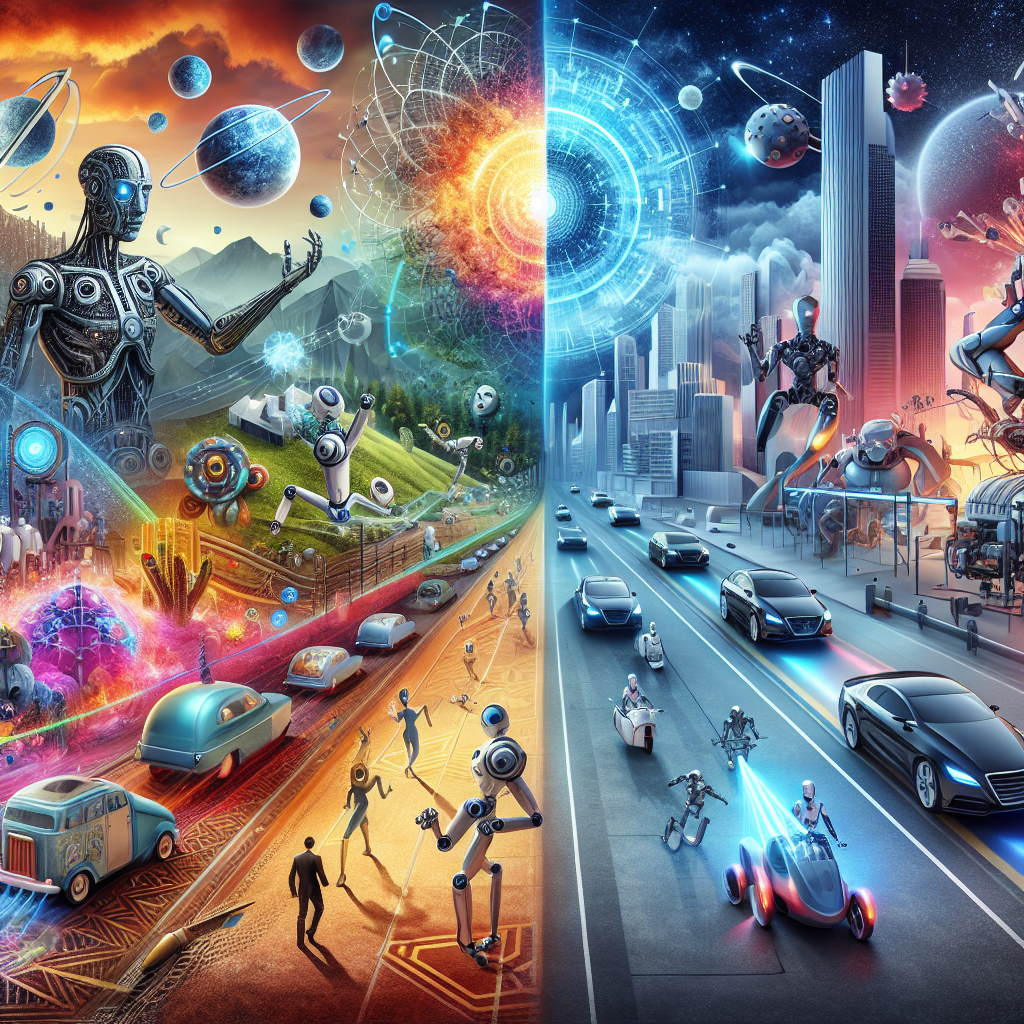From Sci-Fi to Reality: How AGI is Reshaping the World
Artificial General Intelligence (AGI) has long been a staple of science fiction, depicted in movies and books as powerful, sentient beings capable of outsmarting humans in every way. However, what was once the stuff of fantasy is now becoming a reality as advancements in technology bring us closer to creating machines that can think, learn, and problem-solve like humans.
AGI represents a major leap forward in the field of artificial intelligence (AI), which has already revolutionized industries ranging from healthcare to finance. While current AI systems are designed for specific tasks and lack the ability to generalize their knowledge to new situations, AGI promises to bridge this gap by creating machines that can apply their intelligence to a wide range of tasks and adapt to new challenges.
But what exactly is AGI, and how is it reshaping the world as we know it? In this article, we will explore the origins of AGI, its potential applications, and the ethical considerations surrounding its development.
Origins of AGI
The concept of AGI dates back to the early days of AI research, when scientists first began exploring the idea of creating machines that could mimic human intelligence. While early AI systems were limited in their capabilities, researchers soon realized that developing a truly intelligent machine would require more than just programming algorithms – it would require creating a system that could learn and adapt on its own.
This realization led to the development of machine learning algorithms, which enable computers to analyze data, learn patterns, and make predictions without being explicitly programmed to do so. As these algorithms became more sophisticated, researchers began to explore the possibility of creating a machine that could not only learn from data, but also reason, plan, and solve problems like a human.
The result of this research is AGI, a system that combines advanced machine learning techniques with cognitive abilities such as reasoning, language processing, and decision-making. While AGI is still in the early stages of development, researchers are making rapid progress in creating machines that can perform complex tasks and interact with humans in meaningful ways.
Applications of AGI
The potential applications of AGI are vast and varied, with the technology poised to revolutionize industries ranging from healthcare to transportation. Here are just a few examples of how AGI is reshaping the world:
1. Healthcare: AGI has the potential to transform healthcare by enabling doctors to diagnose diseases more accurately, personalize treatments for patients, and predict health outcomes. By analyzing large amounts of medical data, AGI systems can identify patterns and trends that human doctors might overlook, leading to better patient outcomes and more efficient healthcare delivery.
2. Finance: In the financial industry, AGI is being used to analyze market trends, predict stock prices, and detect fraudulent activity. By processing massive amounts of financial data in real-time, AGI systems can help investors make better decisions and protect against cyber threats.
3. Transportation: Self-driving cars are a prime example of how AGI is reshaping transportation. By combining sensors, cameras, and AI algorithms, these vehicles can navigate roads, avoid obstacles, and make split-second decisions in traffic. As self-driving technology advances, AGI systems will play an increasingly important role in making transportation safer and more efficient.
4. Education: AGI has the potential to revolutionize education by personalizing learning experiences for students, adapting to their individual needs and abilities. By analyzing student data and performance metrics, AGI systems can recommend tailored lessons, provide real-time feedback, and track progress over time.
Ethical Considerations
While the potential benefits of AGI are vast, the technology also raises important ethical considerations that must be addressed as it continues to develop. One of the biggest concerns surrounding AGI is the potential for bias and discrimination in decision-making, as AI systems can inadvertently perpetuate existing inequalities if not properly designed and tested.
Another ethical consideration is the impact of AGI on the job market, as automation and AI have the potential to displace workers in a wide range of industries. While AGI has the potential to create new jobs and increase productivity, it also poses a threat to traditional roles that could be automated in the future.
To address these concerns, researchers and policymakers are working to develop guidelines and regulations for the ethical development and use of AGI. By promoting transparency, accountability, and fairness in AI systems, we can ensure that AGI is used responsibly and ethically to benefit society as a whole.
FAQs
Q: Will AGI replace human workers in the future?
A: While AGI has the potential to automate certain tasks and roles, it is unlikely to completely replace human workers in the foreseeable future. Instead, AGI is more likely to augment human capabilities and enable us to work more efficiently and effectively.
Q: How can we ensure that AGI is developed ethically?
A: To ensure the ethical development of AGI, researchers and policymakers must prioritize transparency, accountability, and fairness in AI systems. By setting clear guidelines and regulations for the use of AGI, we can mitigate potential risks and ensure that the technology is used responsibly.
Q: What are some potential risks of AGI?
A: Some potential risks of AGI include bias and discrimination in decision-making, job displacement due to automation, and unintended consequences of AI systems. To address these risks, researchers and policymakers must work together to develop safeguards and regulations for the responsible use of AGI.
In conclusion, AGI represents a major leap forward in the field of artificial intelligence, promising to revolutionize industries and transform the way we live and work. While the technology raises important ethical considerations, researchers and policymakers are working to address these concerns and ensure that AGI is developed and used responsibly. As AGI continues to evolve, it will be essential for society to stay informed and engaged in the conversation surrounding its development to ensure that it benefits us all.

